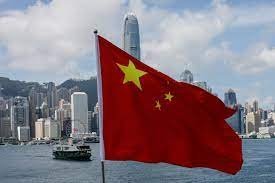$XOM $CVX $PTR #ChinaNews #IranOil #USSanctions #EnergyTrade #GlobalEconomics #OilMarkets #Geopolitics #TradeWars #EconomicSanctions
How Does China Continue to Be Iran’s Top Oil Buyer Despite U.S. Sanctions? Here’s Why It Won’t Stop Anytime Soon
In the realm of international trade, economic sanctions are powerful tools. Yet, they often lead to intricate gameplays among nations. A prime example of this is how China remains the top buyer of Iranian oil despite U.S. sanctions. The persistence of this trade has significant implications for global energy markets and geopolitics, underscoring the complex interplay of economics and diplomacy.
The Mechanics of the Shadow Supply Chain
China’s ability to bypass U.S. sanctions and continue importing oil from Iran can be attributed to a sophisticated shadow supply chain. This system involves the transshipment of oil, where Iranian crude is discreetly transferred from one ship to another, often changing or obscuring its origin before reaching Chinese ports. This method not only complicates tracking but also helps China maintain its energy supplies.
Financial and Economic Implications
The continuation of oil trade between Iran and China has profound financial implications. For Iran, it provides a crucial source of income, vital for its economy strained by international sanctions. For China, access to discounted Iranian oil bolsters its energy security and supports its expansive industrial base at a lower cost. This arrangement aids China in managing its massive energy demands more economically, reinforcing its industrial and economic growth.
Why This Is Unlikely to Change Soon
Several factors contribute to the durability of this arrangement. Firstly, the geopolitical stakes are high. China’s strategic defiance against U.S. sanctions aligns with its broader goals to assert its economic sovereignty and expand its influence in global affairs. Secondly, the economic benefits for both China and Iran serve as a strong incentive to continue this partnership.
Moreover, the complexity of the shadow supply chain makes it incredibly challenging for external forces to disrupt this trade effectively. Despite the U.S.’s efforts to tighten sanctions, the opaque nature of oil transshipment allows China and Iran to sustain their oil trade covertly.
The Broader Impact on Global Markets
The persistence of China-Iran oil trade impacts global oil markets. It introduces a layer of unpredictability and tension, potentially affecting oil prices and market dynamics. Additionally, it poses a strategic challenge to U.S. foreign policy, highlighting the limitations of unilateral sanctions in a multipolar world order.
Conclusion
In conclusion, the resilience of China’s oil trade with Iran illustrates the complexities of modern geopolitical and economic landscapes. Despite stringent U.S. sanctions, the shadow supply chain has enabled China to secure a continuous flow of Iranian oil. This situation underscores the intricate nature of international relations and the limits of economic sanctions. As global tensions persist, this dynamic is unlikely to change anytime soon, continuing to influence global trade and economics profoundly.
For more insights into global stock movements and economic strategies, you can explore detailed analyses at this dedicated section.





Comments are closed.